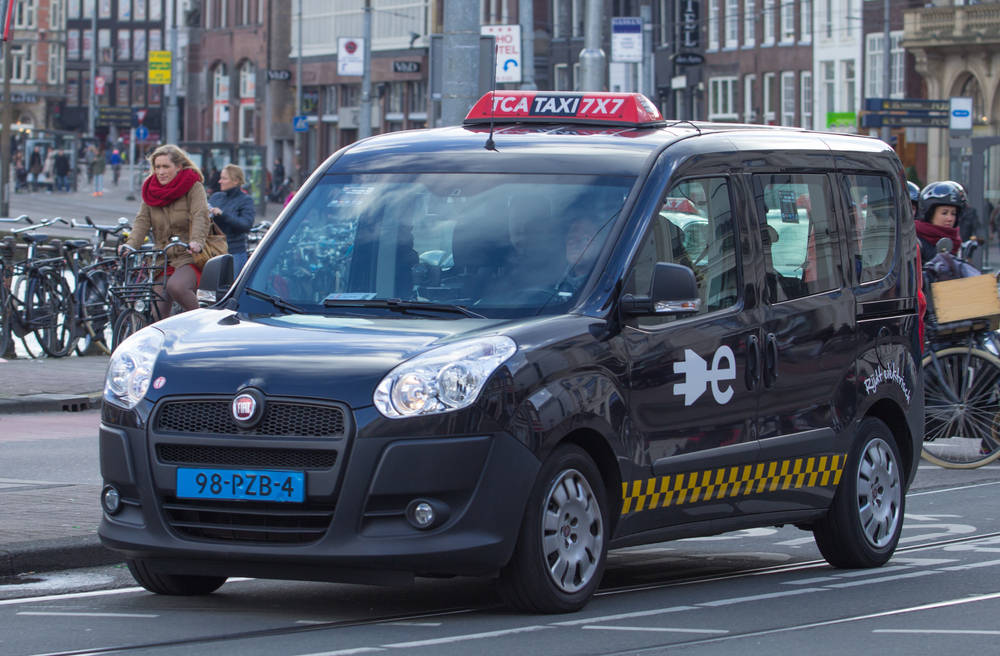An uneven playing field has arisen because municipalities can set rules for the entry-level market.
The changes have created new challenges and opportunities for both taxi companies and independent drivers. It is important for them to adapt to this new reality in order to remain competitive in today's market. Taxis in the big cities depended heavily on the step-up market – people hailing a taxi on the street. But with the advent of taxi apps, people can now order a taxi from the comfort of their own homes, which has reduced dependence on the step-up market.
evaluation
Commissioned by the Ministry of Infrastructure and Water Management (I&W), the Rebel and Goudappel bureaus are conducting an evaluation of the national taxi legislation. Part of the research is interviews with stakeholders. A group discussion already took place in April with a number of taxi companies from Den Bosch, The Hague, Rotterdam and Amsterdam, under the representation of the employers' organization Royal Dutch Transport (KNV). Those present agreed that the market has changed due to a shift from the entry level market to the order market as a result of the rise of the order platforms. Legislation is no longer in line with this.
An uneven playing field has arisen because municipalities can set rules for the entry market, but not for the ordering market. Various suggestions were made by the entrepreneurs as to how exactly this should take shape. All emphasized that a change in the law alone is not enough. Enforcement of the rules is essential and is now often lacking or not aimed at improving quality. In the margins of the conversation, the researchers indicated that they would also visit the various cities in order to gain a better picture of the problem.

The taximeter is not mandatory if a fixed price has been agreed with the customer in a known and transparent manner prior to the taxi ride (for example by telephone, via the taxi company's website or app).
However, there may be reservations about the method whereby the porter or reception employee calls a regular taxi company with which they work. The taximeter is indeed not used, but the customer does not know the fare and the amounts charged are often barely in line with the rules that apply to the entry-level market.
driver service
This type of transport departs from fixed locations such as hotels under the name of a chauffeur service. These are taxi drivers who specialize in quality transport for the higher and business segment. But because the customer often does not know in advance what the rate is, and cannot check the taximeter en route because it has not been switched on, discussions can arise at the departure hall at Schiphol or when getting off at the final destination. And that can create a negative image about the sector.
cab meter
Taxi drivers are checked on the use of the taximeter. The taximeter is the on-board computer of the taxi and registers the journey from start to finish. A fine is regularly imposed because the taximeter was not turned on, even though the police have established that there was passenger transport. What the police often don't know is that the taximeter does not have to be used when transporting for Uber or Bolt. The condition is that the usual App has been switched on.
The step-up market only concerns taxi transport from the taxi rank or after being stopped on the street.
Some large municipalities can force taxi operators active in the entry market (taxi transport from the base or after stopping on the street) to organize themselves into groups. This means that a taxi driver must be affiliated with an Approved Taxi Organization (TTO). Is the taxi driver not affiliated with the TTO? Then he is not allowed to take customers from a taxi rank. The TTOs and taxis must meet the requirements of the municipality. For example, the taxis must be recognizable as a group. In addition, they must have a TTO permit. The aim is to improve the quality of taxi transport. There is mutual control and poorly performing taxi drivers can be excluded from participation in the TTO.



